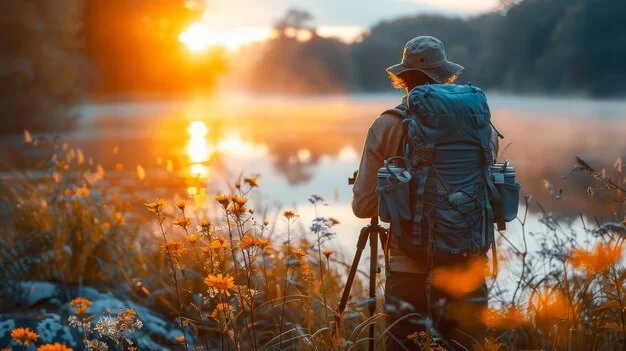Explore outdoor photography tips to capture stunning nature shots on your trips. Learn composition, lighting, and storytelling techniques with insights from Pine Cliff Resort.

- Mastering-Lighting-in-Nature-Photography
- Composition-Techniques-for-Outdoor-Shots
- Equipment-and-Preparation
- Storytelling-Through-Images
- Real-Experiences-in-the-Wild
- Practical-Tips-for-Travelers
Mastering Lighting in Nature Photography
Lighting is the soul of photography, especially outdoors where you cannot control the sun. The golden hour—just after sunrise or before sunset—casts a warm glow that enhances colors and creates softer shadows. Photographers often describe this as nature’s gift to storytellers. If you are hiking at Pine Cliff Resort, the early morning mist combined with the sunrise provides an ethereal backdrop perfect for landscape shots. Understanding how to use natural light to your advantage is the first step toward breathtaking photos.
Composition Techniques for Outdoor Shots
Great outdoor photography is more than pointing and shooting—it’s about framing a story. The rule of thirds is a classic approach where you align your subject along the gridlines to create balance. Leading lines, like winding rivers or trails, guide the viewer’s eyes naturally through the frame. A camper once captured a trail leading into the sunset at Pine Cliff Resort, and the image became viral because it told a story of adventure and serenity. Composition transforms ordinary moments into memorable imagery.
Equipment and Preparation
Many travelers mistakenly believe that only expensive gear creates stunning images. In reality, preparation and knowing your equipment matter more. A DSLR or mirrorless camera provides flexibility, but modern smartphones are equally capable with their advanced sensors. Carrying lightweight tripods, polarizing filters, and extra batteries can make a huge difference in outdoor sessions. Before heading into the wild, ensure your gear is weather-protected and ready for long days of exploration. At Pine Cliff Resort, photographers often benefit from local guides who suggest hidden spots ideal for capturing wildlife and landscapes.
Storytelling Through Images
Every photograph tells a story, and outdoor photography excels when it captures emotion and connection with nature. A single frame of a hiker overlooking a mountain ridge can evoke feelings of wonder and solitude. Combining wide shots of landscapes with close-ups of flowers, rocks, or wildlife adds depth to your narrative. When sharing your travel experiences, think of your photos as chapters in a storybook. Each click should contribute to a larger journey that viewers can feel and imagine themselves in.
Real Experiences in the Wild
Some of the best outdoor photography tips come from real experiences. In 2019, a traveler documented their solo camping trip with only a smartphone and a tripod. Despite limited gear, their photos of starry skies and campfires captured raw beauty and were later featured in a travel magazine. Similarly, families visiting Pine Cliff Resort often share candid shots of children playing by the lake, proving that authentic moments outweigh perfection. These stories remind us that photography is about presence, not just technique.
Practical Tips for Travelers
Travel photography comes with challenges—weather changes, unpredictable wildlife, and limited time. To overcome these, plan flexible itineraries that allow for spontaneous photo opportunities. Always carry protective gear for your camera and yourself, including rain covers and comfortable clothing. Practice patience, as the perfect shot often requires waiting. Finally, never forget to step away from the lens and enjoy the view. At Pine Cliff Resort, many travelers balance photography with relaxation, ensuring that their memories are both captured and lived fully.
Indian Point RV Park on Lake Barkley
1136 Indian Hills Trail, Eddyville, KY 42038, USA
Visit Location PageHorseshoe Lake Campground
Estacada, OR 97023, USA
Visit Location Page